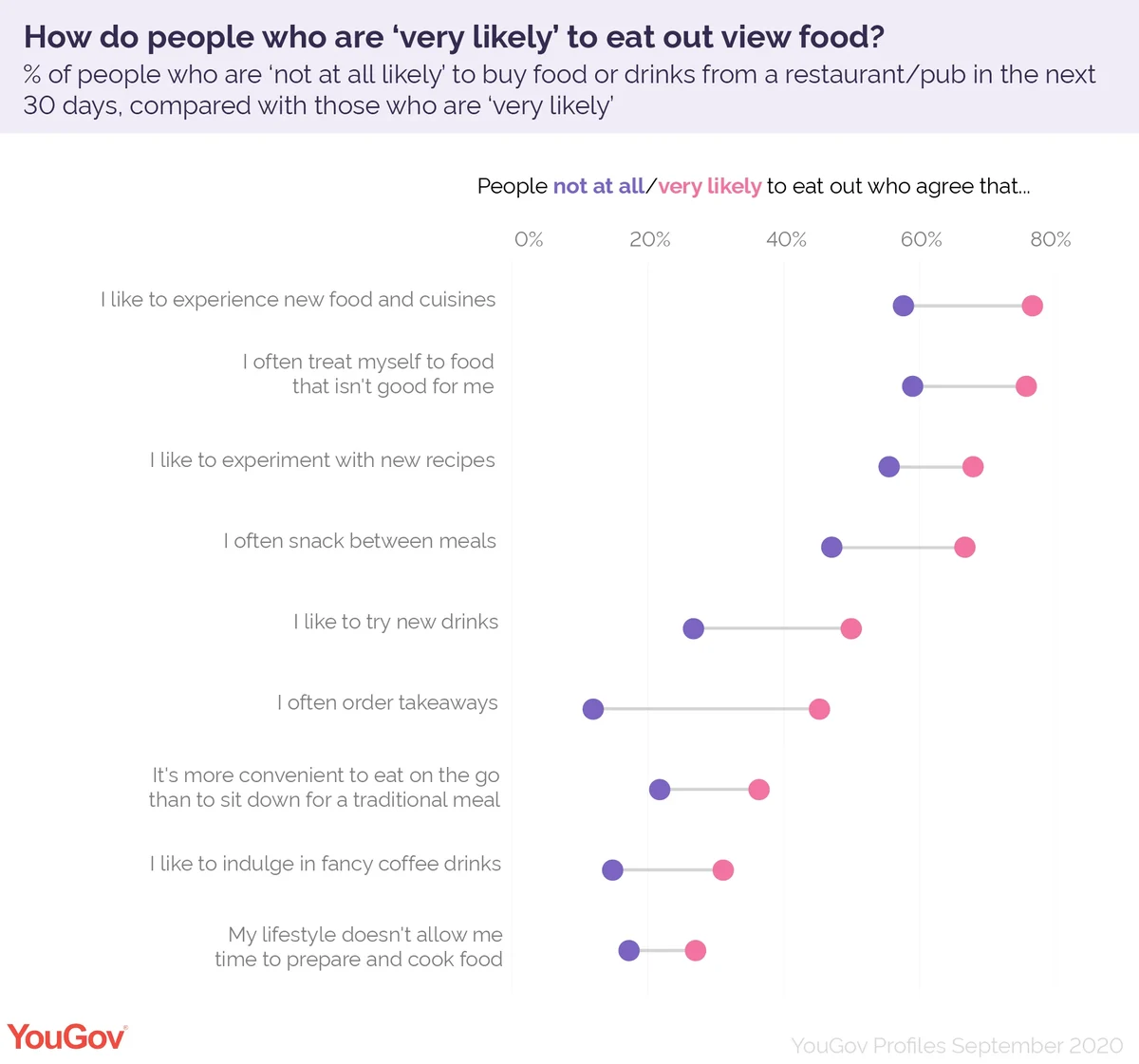
How do restaurant-goers and homebodies compare?
The Eat Out to Help Out Scheme may have now ended, but over a quarter of Brits still say they’re ‘very likely’ to buy food or drinks from a restaurant or pub in the next 30 days
This group of restaurant-goers contrasts with around a fifth of Brits (22%) who say they definitely won’t be eating out in the next 30 days. YouGov data shows that these two groups mainly vary in terms of income, age and their attitudes to food.
People likely to eat out tend to be slightly better off, with a quarter (26%) having at least £500 in disposable income a month, compared with about a fifth of Brits who won’t be eating out (19%). Only 4% have no disposable income, while this is true for 11% of people not eating or drinking out.
People planning to dine out are more likely to be aged 25 to 39 (33% vs 15%), while over half of those who say they will not have food out are 55 and older (54% vs 28%).

Brits likely to eat out take a more indulgent view on food and are by their own admission less disciplined than their counterparts. They are more inclined to say they like trying new foods and cuisines (77% agree vs 58% of those who don’t expect to eat out) and admit to often treating themselves to unhealthy food (76% vs 59%).
Similarly, they’re more likely to snack between meals (67% vs 47%) and are also prone to ordering takeaways (45% vs 12%).